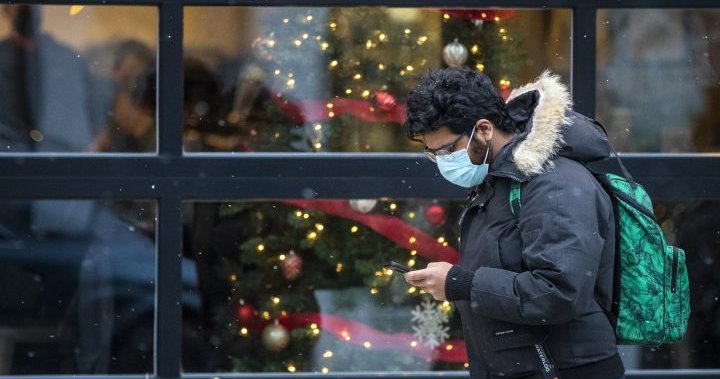
Canada ushers in 2022 with record COVID-19 cases after muted New Year’s Eve
Global News
The trappings of COVID-era new year's festivities were evident throughout the country, but were particularly striking in Canada's eastern-most province.
Several parts of Canada ushered in 2022 by documenting record-setting COVID-19 case counts after a quiet New Year’s Eve dampened by tightened public health restrictions and fears of getting sick in the latest wave of the pandemic.
Quebec, Ontario and Newfoundland and Labrador all logged new peaks in their daily COVID-19 counts, in some cases continuing a streak of rapid infection growth and toppling previous records set just 24 hours earlier.
Health officials in Quebec reported 17,122 new COVID-19 cases on New Year’s Day, marking the fifth straight day that a record number of new infections have been reported in the province. It also recorded 12 more deaths linked to COVID-19 and 98 more people in hospital, for a total of 1,161 patients.
Quebec residents rang in the new year under a newly instituted, provincewide curfew. The rules took effect Friday and required everyone to be home by 10 p.m., and to stay there until 5 a.m.
The Canadian Civil Liberties Association condemned the new measures, saying the government has presented no evidence that a curfew will work to slow the spread of COVID-19.
“A curfew is particularly problematic because it purports to empower police officers to stop and question individuals simply for being outdoors at certain times of day,” Cara Zwibel, the association’s director of fundamental freedoms and acting general counsel, said in a statement Friday evening. “The burden of these police stops is likely to fall disproportionately on racialized individuals and other marginalized groups.”
Quebec is the only province in Canada to use a curfew as part of its efforts to control the spread of COVID-19.
In Ontario, meanwhile, public health officials reported a staggering 18,445 new cases Saturday, trouncing Friday’s record-setting tally of 16,713 new diagnoses. Ontario is one of several jurisdictions to have changed its availability of polymerase chain reaction testing for COVID-19 and as a result, public health warned that Saturday’s figures represent an “underestimate.”











